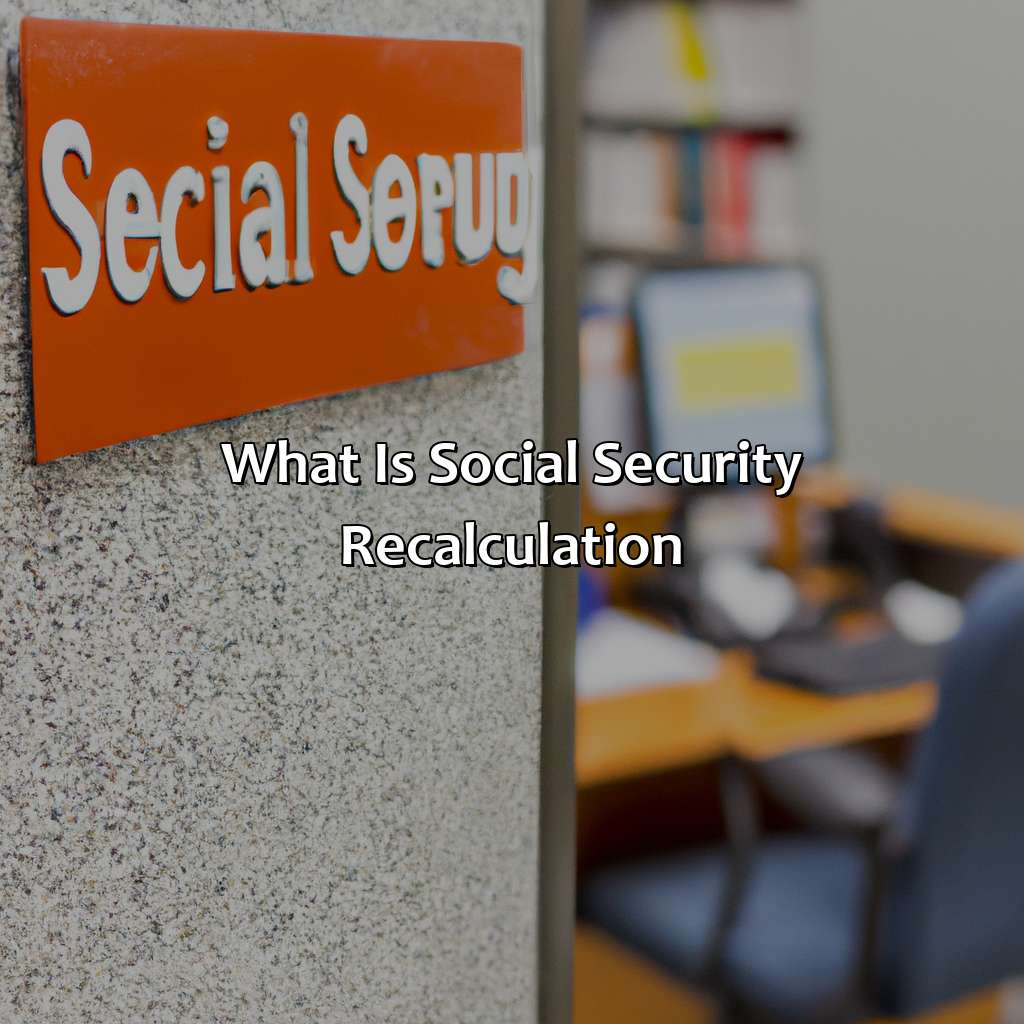When Does Social Security Recalculate Benefits?
Key Takeaway:
- Social Security benefits may be recalculated if certain circumstances occur, such as errors in the initial benefit calculation, changes in life circumstances, or if there are changes to Social Security laws.
- Factors that affect Social Security recalculation include earnings history, age, and disability status. These factors are used to determine the amount of benefits a person is eligible to receive.
- Social Security benefits are recalculated on a periodic basis, normally every one to three years. However, beneficiaries can request a recalculation at any time if they believe there has been an error in their benefit calculation or if their circumstances have changed.
Looking for help to understand when Social Security benefits are recalculated? You have come to the right place. This article will explain when and why your benefits are recalculated and how it can impact you. Gain the knowledge needed to ensure you are getting the most out of your benefits.
Social Security Recalculation Overview
Social Security benefits recalculation happens when changes occur to your earnings record. This could take place due to work in the current year, amendments to prior year records, or an error correction.
Social Security Administration recalculates your benefits automatically each year. However, it is recommended to periodically review your earnings to ensure they are accurate. In case of a discrepancy, inform SSA immediately.
Pro Tip: Review your earnings statement annually to make sure you receive the correct Social Security benefits.

Image credits: retiregenz.com by David Washington
What is Social Security Recalculation?
Social Security Recalculation refers to the process of reviewing and adjusting an individual’s Social Security benefits based on changes in their work history or earnings. This can occur at various points throughout the individual’s lifetime, such as when they reach a certain age, get married, or return to work after retirement. Recalculation may result in an increase or decrease in the individual’s benefits, depending on the specifics of their situation.
During the initial calculation of Social Security benefits, the Social Security Administration uses a formula based on the individual’s average lifetime earnings to determine their benefit amount. However, if the individual has additional earnings or experiences a change in work history after their benefits have been calculated, their benefits may be recalculated accordingly.
One unique aspect of Social Security Recalculation is that it can also take into account any changes in the Consumer Price Index (CPI) and adjustments to the cost of living, which are intended to keep up with inflation and ensure that benefits remain fair and adequate over time.
History shows that in 1972, Congress passed legislation requiring Social Security benefits to be automatically adjusted for inflation on an annual basis, using a CPI-based formula. This automatic recalculation is now a routine part of Social Security benefits administration, ensuring that beneficiaries receive fair and up-to-date benefits year after year.

Image credits: retiregenz.com by Adam Woodhock
When Does Social Security Recalculate Benefits?
When Social Security Recalculates Benefits
Social Security recalculates benefits when a person’s earnings increase or decrease. The administration uses the highest thirty-five years of a person’s earnings to calculate their benefit amount. If a person earns more in a year than one of the thirty-five years used to calculate their benefit, Social Security will recalculate their benefit. Additionally, if a person previously received dependents or survivor benefits, Social Security will recalculate their benefits to reflect changes in their own earnings.
Social Security adjusts benefits for cost-of-living increases each year. In recent years, cost-of-living adjustments have been relatively small due to low inflation rates. However, inflation can cause living expenses to rise, leading to a higher cost-of-living adjustment.
Unique Details
If a person receives Social Security benefits before reaching their full retirement age and continues to work, their benefits may be reduced. Social Security will recalculate their benefits once they reach their full retirement age to account for the months in which benefits were reduced. This could result in a higher benefit amount.
True History
In 1972, Social Security began automatic cost-of-living adjustments to help keep up with inflation rates. Prior to that, Congress had to pass legislation to adjust benefits for inflation. The automatic adjustments have resulted in more stable benefits for recipients, especially during times of high inflation.

Image credits: retiregenz.com by David Washington
Five Facts About Social Security Benefit Recalculation:
- ✅ Social Security benefits are recalculated every year for recipients who continue to work and earn income. (Source: Social Security Administration)
- ✅ The recalculation considers new earnings and adjusts the original benefit amount to reflect any increase in the recipient’s average lifetime earnings. (Source: AARP)
- ✅ The recalculation applies to those who have not yet reached full retirement age. (Source: Investopedia)
- ✅ Social Security benefits are usually recalculated automatically, but recipients can also request a recalculation by contacting the Social Security Administration. (Source: The Balance)
- ✅ Recalculation can result in an increase, decrease, or no change in Social Security benefits, depending on the recipient’s earnings history and age. (Source: Forbes)
FAQs about When Does Social Security Recalculate Benefits?
When does Social Security recalculate benefits?
Social Security recalculates benefits whenever there is a change in your life situation that could affect your benefits.
What life situations could trigger a recalculation of Social Security benefits?
Life situations that could trigger a recalculation of Social Security benefits include getting married, getting divorced, adopting a child, and experiencing a temporary or permanent disability.
How often does Social Security recalculate benefits?
Social Security typically recalculates benefits once a year using the most up-to-date information available.
What information does Social Security use to recalculate benefits?
Social Security uses your earnings record and life situation information to recalculate your benefits. They will look at your work history, age, and any changes in your income or employment status.
Can I request a recalculation of my Social Security benefits?
If you experience a change in your life situation that could affect your benefits, you can request a recalculation from Social Security. You may also want to speak with a Social Security representative to discuss your options.
Will my benefits go up or down during a recalculation?
Your benefits may go up or down during a recalculation. It depends on the nature of the change in your life situation and the impact it has on your Social Security benefits.


